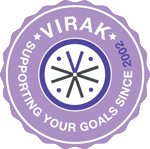Preparation for the PMI-ACP® exam 
The PMI® Agile Certified Practitioner® certification recognizes your knowledge of Agile principles, practices and tools and techniques across Agile methodologies, a rapidly growing approach to any project management. Agile is a time boxed, iterative approach to project delivery that builds project incrementally from the start, instead of trying to deliver it all at once near the end.
An Agile Certified Practitioner (ACP)® Certification by the Project Management Institute (PMI)®
- Demonstrates to employers the level of professionalism in agile practices, tools and techniques;
- Increases professional versatility in agile techniques;
- Holds a certification that is more credible than existing entry-level, training or exam-only based offerings.

Method of our ACP® certification preparation
Contrary to most ACP® courses, ours is a balanced mix between theory and the sharing of experience from our trainer's 15 years of software industry experience. Not only you will learn about Agile in a fun and interactive way, but you will be able to pass a very serious exam that will certify your knowledge!
The trainer will also remain available to all participants during the exam preparation for 30 days after the training. After training exam prep support includes e-mail support (Q&As) or video conferences.
The course provides you with the 21 training contact hours necessary to sit the ACP® exam, and you will receive a certificate of attendance at the end of the course.
We are PMI® Registered Education Providers (REP)®. Numerous prestigious companies have trusted us to prepare their project managers for certification: Actelion, Alstom, Credit Suisse, Hugo Boss, Ralph Lauren, Roche, Swiss Re, T-Systems, and many more.
Outline of ACP® certification preparation
Day 1:- Introduction to methodologies and standards and the agile value proposition
- Major agile methodologies (Scrum, XP, Kanban, lean, FDD, Crystal, DSDM)
- Agile delivery teams: roles and responsibilities, accountabilities, communications, stakeholder management, leadership, tools and practices, information sharing.
- Project Initiation: Project and portfolio management; Key project indicators, vision and charter
- Backlog management: User stories; Requirement collection techniques; Planning, organizing and prioritization; Re-prioritization and grooming; Change requests management
- Release / iteration planning: Agile planning concepts; Estimating techniques; Story points and other estimating indicators; Story mapping and product roadmaps; Wireframes and personas
- Inside and around the iteration: Before the iteration; Daily stand-ups; Reviews and retrospectives
- Testing strategy: Tips and tricks for passing the exam; Exam simulation and analysis
